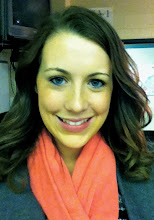4th Grade History
STUDY GUIDE – CHAPTER 17
Terms to know
- Alliance – a promise between two or more countries to fight together against their enemy in time of war
- Allies – the United States was part of this power during World Was II, against Germany
- Axis Powers – the countries that sided with Germany
- Lusitania
- English passenger vessel sunk by German U-boats
- this angered Americans, but America did not enter the war at this time
- Nationalism – a sense of loyalty to one’s own country
- Neutral nations – the countries that did not form an alliance during WWI
- Roaring 20’s – name for the 1920’s b/c all was going well during those years
- U-boats
- used by the Germans during World War I to destroy England’s ships carrying food and supplies
- called submarines today
- Veteran’s Day – celebrated as a day to honor all who have fought for our country in war
- V-E Day – when Germany surrendered to the Allies
- World War I – from 1914 to 1918
- Zimmerman Note
- promised land in the United States to Mexico
- a letter asking Mexico to enter the War on Germany’s side
- United Nations – an organization set up after World War II to help nations settle their problems
Places
- Great Britian – one of the only countries in Europe not occupied by Nazis
- United States – known as "the great arsenal of democracy"
- Hiroshima and Nagasaki – the bombing there caused the surrender of Japan
- Pearl Harbor – bombing there caused the United States to enter World War II
- Poland – when Hitler attacked there, World War II began
- Berlin – German city which was divided by the "Wall of Shame" after World War II
Country
|
Leader
|
Government
|
Axis / Allies
|
Russia
|
Stalin
|
Communism
|
Axis
|
Italy
|
Mussolini
|
Fascism
|
Axis
|
Germany
|
Hitler
|
Nazism
|
Axis
|
Japan
|
Tojo
|
Militarism
|
Axis
|
U. S.
|
Roosevelt
|
Democracy
|
Allies
|
People
- Calvin Coolidge – first President to give the inaugural address over the radio
- Archduke Ferdinand – was shot by an angry youth which caused the start of World War I
- Hitler – Nazi leader who broke his alliance with the Soviet Union and attacked them
- Lenin – the cruel dictator who built the Communist empire called the Soviet Union
- Franklin D. Roosevelt – President of the United States during World War II
- Woodrow Wilson – President of the United States during World War I he said, "The world must be made safe for democracy



